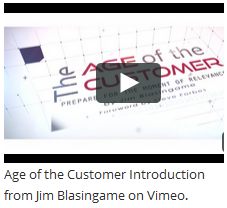One of the markers of this post-recession, so-called recovery has been the practice of deleveraging. Across the economy, from consumers to businesses large and small, debt has become something to get rid of.
Out here on Main Street, this trend has manifested in a dramatic drop in bank borrowing by small firms. Indeed, for more than a half decade, survey after survey has shown that less than 5% of business owners report their borrowing requirements have not been met, while the majority say emphatically they don’t want or need a loan. Consequently, there’s a pretty good chance your business hasn’t made a loan request to a bank in a while.
But the economy will eventually kick into an expansion phase, and what has become no less than a de facto moratorium on borrowing won’t last forever. And since most small business growth capital comes from bank loans, even for well-capitalized firms, it’s always good to revisit a few banking relationship fundamentals.
But don’t worry. If you’ve never asked a banker for a loan, or if it’s been a while, getting a bank loan is a lot like the process of qualifying a prospective customer. For example, you want to know these three things:
1. Who decides?
You have the right to ask who is going to make the decision on your loan. Can your loan officer decide, or will it go to the local loan committee or somewhere else? Why do you care? The more people involved in the loan approval process increases the scrutiny of your deal, which means more questions and more time for you to budget from proposal to answer.
2. What do they need?
Your banker will ask for personal and business financial information. They might accept last year’s business numbers, but they could also ask for an interim report. Depending on the size of your request and what you’re using the money for, they may ask for a business plan. If the loan is for real estate, a current appraisal will be required.
Don’t give the bank more than they ask for, but give them everything they ask for. Remember, the quicker your banker gets the information, the quicker you’ll get an answer.
3. How do they want it?
Ask your banker what information can be presented verbally and what needs to be in writing, whether hard copy or electronic. Whether you’re borrowing $5000 for a computer, or $5 million to buy out a competitor, knowing as much as you can about the loan approval process will significantly improve your chances of not only getting a quick answer, but a yes.
Next time, Part Two: What motivates your banker.
Write this on a rock … Qualify a bank like you do customers, and be sure to do your homework.






